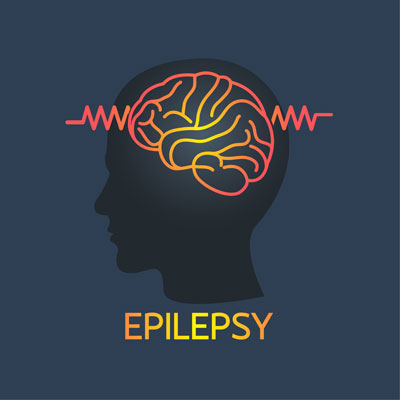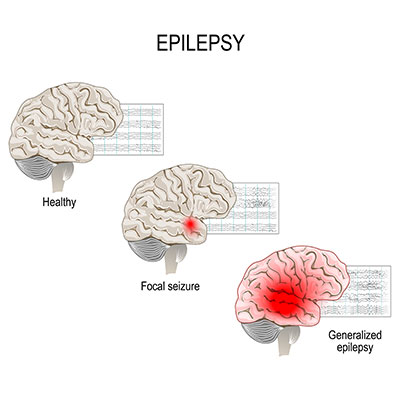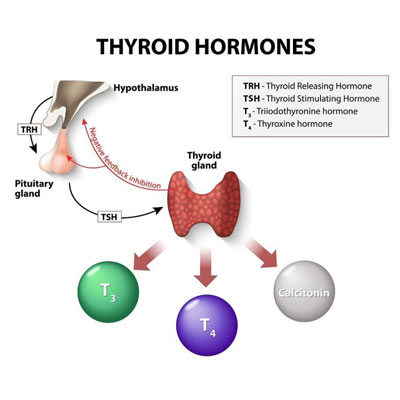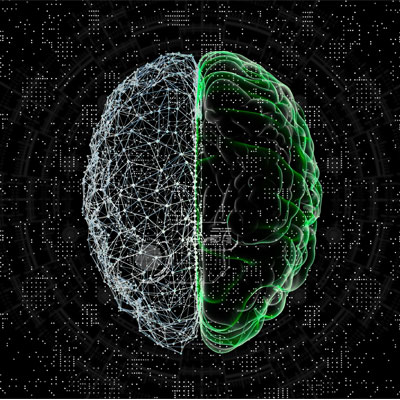Contents
- We begin with this question: What are hormones, and how do they affect the body?
- How are hormones connected to epilepsy?
- Is it possible to have a blood test for checking hormones causing epilepsy?
- What is Epilepsy?
- Can changing hormones cause epilepsy?
- What Impact Do Hormones Have on Epilepsy?
- What hormones can be related to epilepsy?
- Regarding thyroid hormones possible roles in epilepsy pathology, what should we know about that?
- Women, Hormones, and Epilepsy
- How does the menstrual cycle influence epilepsy?
- Can epilepsy influence fertility and reproduction?
- Does pregnancy alter the impact of epilepsy?
- How does menopause affect epilepsy?
- Men, Hormones, and Epilepsy
- Can Hormone Therapy Help Epilepsy?
Epileptic seizures can affect a person in many ways. When you add changing hormone levels into the situation, it can alter the frequency and pattern of these seizures. In this report, HGH Doctor hormone clinic will examine epilepsy and your changing hormones to shed some light on the subject.
We will answer the following questions:
- What are hormones, and how do they affect the body?
- Will blood tests show if hormones are causing epilepsy?
- What is epilepsy, what are the symptoms, and what causes it to occur?
- What impact do hormones have on epilepsy?
- Do women’s changing hormone levels during different times of life influence epilepsy?
- Do male hormones such as testosterone impact epilepsy, or does epilepsy influence testosterone levels?
- Can hormone therapy help with epileptic seizures?
We begin with this question: What are hormones, and how do they affect the body?
Hormones are the body’s chemical messengers. Their purpose is to deliver critical signals that cause actions, such as stimulating the metabolism of food, promoting the growth of new cells, balancing salt, sugar, electrolyte, and water levels in the bloodstream, and even controlling heart rate, brain functions, and emotional well-being. Hormones may fall into one of the following groups:
- Steroids
- Amino acids
- Peptides
- Eicosanoids
When hormone levels rise or fall, they can alter the functions they control. Hormonal deficiency is a problem for many people as they reach menopause or andropause. That is why we tend to see more serious illnesses occur as adults age. Weak bones, impaired cardiac functions, poor immunity, and even mental decline are possible.
How are hormones connected to epilepsy?
Some hormones, particularly the steroid sex hormones, can excite or inhibit brain nerve cells that can lead to or prevent a seizure.
Is it possible to have a blood test for checking hormones causing epilepsy?
Yes, an epilepsy blood test that measures prolactin levels can show if the seizure is related to epilepsy or another issue. The hard part about getting this particular test is that it must be performed within 10 to 20 minutes following a seizure to properly measure prolactin levels. It is believed that the hypothalamus responds to an epileptic seizure by increasing prolactin release. However, because prolactin levels also rise after fainting episode seizures, it may not provide completely accurate results.
The doctor will likely also order a complete blood count (CBC) and complete metabolic panel (liver and kidney functions, blood sugar, potassium, and sodium levels) to see if any of these issues are causing the seizures. If any hormonal imbalances are suspected based on other symptoms, the doctor may measure those levels, as well.
Changing hormone levels can exert an influence on epilepsy seizures.
What is Epilepsy?
Epilepsy is a neurological disorder that can affect a person at any age. Also called seizure disorders, epileptic seizures are unpredictable and can lead to other health issues. The type of seizure can vary significantly from one person to the next. Due to the recurrent nature of the seizures, epilepsy is a chronic disorder. A person may even exhibit more than one type of seizure or have other neurological symptoms in addition to epilepsy.
Symptoms
The symptoms of a seizure can vary, affecting people in different ways. It may even be difficult to recognize a seizure, at first. For many people, an aura is the first symptom, but not everyone experiences this. Because epilepsy occurs when electrical activity in the brain causes a seizure, it may not appear until the actual effect is visible. Recovery after a seizure can happen right away or take minutes or hours.
Early signs of a seizure can occur days before the epilepsy event onset for some people, or with no warning for others.
The first symptoms may include any of the following:
- Changes in behavior, feelings, or sensations
- An aura – which can be indescribable or recognizable
- A feeling of Déjà vu or jamais vu
- Changes in smell, sounds, or taste
- Loss or blurring of vision
- Fear or panic
- Racing thoughts
- Pleasant feelings
- Headache
- Lightheadedness or dizziness
- Nausea feelings rising from the stomach to the throat
- Tingling or numbness in any part of the body
The mid-point of the seizure is called the ictal phase and begins with the onset of the first symptoms to the end of the activity.
In addition to the symptoms mentioned above, other signs can occur, including:
- Blacking out, loss of consciousness, loss of awareness
- Confusion, forgetfulness, or memory lapses
- Distraction
- Out of body sensations
- Flashing lights
- Inability to see, loss of vision
- Body parts look or feel different
- Inability to talk clearly
- Loss of movement or muscle tone
- Twitching, jerking movements, tremors
- Body becoming rigid
- Automatisms – repeated non-purposeful movements
- Convulsions
- Sweating
- Racing heart
- Loss of urinary or bowel control
- Skin color changes
- Dilated pupils
- Tongue biting
- Breathing difficulty
When the epileptic seizure ends, a person may experience any of the following:
- Confusion
- Sleepiness
- Memory loss
- Slow response
- Lightheadedness
- Scared
- Depression
- Anxious
- Embarrassment
- Frustration
- Difficulty in writing or talking
- Exhaustion
- Headache
- Thirst
- Nausea
- Weakness
- Bathroom urgency
- Injuries experienced during the seizure, including bruises, fractures, and cuts
Causes
Roughly half of all people who experience epileptic seizures will never know the cause. Seizures may be due to any of the following:
- Genetic issues involving one or more genes
- Congenital conditions such as Angelman’s syndrome, Down’s syndrome, neurofibromatosis, or tuberous sclerosis
- Changes in the structure of the brain
- Head injuries
- Autism spectrum disorder may be related in 3 out of 10 children
- Tumors, strokes, and injuries are the most common causes in middle-aged adults
- Stroke is the most common cause of seizures in adults over 65
- Brain infections can leave scarring behind that can lead to future seizures
- In newborns, epilepsy could be related to brain malformation, intracranial hemorrhage, lack of oxygen during birth, maternal drug use, or low blood calcium, sugar, magnesium, or electrolyte levels
Risk Factors
Although the cause is not always known, certain risk factors can increase the risk of epilepsy, including:
- Babies born small for their age, with abnormal areas in their brain, or who have seizures during their first month of life
- Abnormal blood vessels or bleeding in the brain
- Brain tumors
- Brain injury or lack of oxygen supply to the brain
- Arterial blockage resulting in a stroke
- Brain infections such as abscess, encephalitis, meningitis
- Cerebral palsy
- Family history
- Autism spectrum disorder
- Conditions associated with developmental or intellectual disabilities
- Illegal drug use such as cocaine
- Fever-related seizures
- Alzheimer’s disease
Can changing hormones cause epilepsy?
Hormonal imbalance is typically not a cause, but rather an influence of an epileptic seizure. Some women may experience seizures in conjunction with their menstrual cycle, which we will explain in a separate section.
In addition to looking at epilepsy and your changing hormones, poor nutrition, heavy alcohol use, lack of sleep, drug use, and psychological stress can influence seizures.
Epilepsy causes are not always known; symptoms may or may not appear ahead of a seizure.
What Impact Do Hormones Have on Epilepsy?
Both men and women are subject to an interaction between epilepsy, its medications, and hormones. How do hormones play a role in epilepsy? Hormonal balance is regulated by the hypothalamus-pituitary-endocrine axis with a direct feedback signaling loop. The brain regulates hormonal secretions, and both epilepsy and its various medications can influence hormonal regulation. Antiepileptic drugs (AEDs) can affect the hypothalamus, pituitary gland, liver, peripheral endocrine glands, the limbic system, and adipose tissue.
In addition to prolactin, which we mentioned earlier, thyroid hormones, sex steroid hormones, and vitamin D levels may also be affected. Sex hormones start to influence brain function within months after conception, long before birth. Estrogen (crucial for men and women) can excite the brain cells, increasing the risk of seizures. Progesterone, which is a precursor hormone, opposes the effects of estrogen and can help prevent some women from having seizures by calming down the cells.
Regarding thyroid hormones possible roles in epilepsy pathology, what should we know about that?
When we look at epilepsy and your changing hormones, we find that a deficiency of the thyroid hormones L-thyroxine and L-triiodothyronine early in life that is not corrected could increase predisposition to epilepsy. The increased risk factor would be due to the irreversible motor and neurological deficits resulting from lack of thyroid hormones crucial for normal central nervous system development. In later years of life, a head injury or hormonal imbalance that affects thyroid hormone production could also influence epileptic seizures.
Numerous hormones can influence epilepsy, both before birth as well as throughout life.
Women, Hormones, and Epilepsy
One interesting aspect of epilepsy and your changing hormones sometimes occurs at puberty, when hormonal fluctuations stimulate the body’s growth and development. Some seizures may actually disappear at that time, while others may present themselves during this change of life. For women, the menstrual cycle brings additional challenges when dealing with hormones and epilepsy.
How does the menstrual cycle influence epilepsy?
When there is a connection between epilepsy and women’s hormones during the menstrual cycle, the term used is “catamenial epilepsy.” Also known as menstrual seizures, women with CE tend to experience an increase in seizures times with various parts of their cycle:
- Right before their period
- During menstruation
- During ovulation
Imbalances in estrogen and progesterone levels can influence catamenial epilepsy. Progesterone levels tend to drop right before menstruation, removing the protection that hormone offers for the brain. Since estrogen levels rise during ovulation, that can also trigger a seizure.
Can epilepsy influence fertility and reproduction?
When seizures start in the female temporal lobes of the brain, the incidence of having reproductive disorders often increases. The temporal lobes are connected to the region of the brain that houses the hypothalamus which regulates the production of the sex hormones. When epilepsy seizures begin in the temporal lobe, they could disrupt the release of the hormones that regulate ovarian function. Some AEDs also interfere with hormonal secretion. Women may experience an increase in polycystic ovaries, irregular or lack of ovulation, and even early menopause.
Does pregnancy alter the impact of epilepsy?
Some females may experience a decline in seizure frequency while others may experience a worsening of their symptoms. Those who experience more frequent or stronger epileptic seizures may be a result of the cessation of AEDs due to birth defect risk. Both the doctor and the expectant mother must work together to ensure a healthy pregnancy with maximum seizure control.
How does menopause affect epilepsy?
The next time in life that a woman goes through significant hormone changes is menopause. At that time, the ovaries cease production of progesterone, testosterone, and estrogen. However, the adrenal glands continue to produce small amounts of hormones. One problem is that estrogen levels tend to increase, especially in women (and men) who are overweight. Belly fat produces an enzyme called aromatase that is responsible for converting free testosterone into estradiol. As the leading form of estrogen in the body, estradiol increases fat retention and resulting in a condition called estrogen dominance. When that occurs, estrogen becomes the dominant sex hormone, with progesterone and testosterone taking a lesser role. The brain loses the protective nature of progesterone. That is why some women may experience a worsening of their epilepsy during and after menopause. However, for some females who have CE, the seizures may disappear.
One problem that women with epilepsy need to be aware of is that some of the AEDs prescribed to treat seizures may contribute to bone loss. Since estrogen and testosterone are crucial for maintaining healthy bone density, it is essential to do everything possible to protect your bones throughout your life.
Puberty, the menstrual cycle, pregnancy, and menopause can influence hormone changes that impact epilepsy.
Men, Hormones, and Epilepsy
The link between epilepsy and hormones in males is not as apparent as it is with women because men do not go through the same monthly cycle as women. That does not mean that male hormones do not impact seizures. Because men also require a certain amount of estrogen in their bloodstream, their brains cells are equally at risk of excitability from estrogen signals. Men also have progesterone in their bloodstream, as that is the precursor hormone to testosterone.
In children, boys are more likely to experience epilepsy seizures than girls. There are three types of epilepsy syndromes more common in girls compared to six types in boys.
As we explore epilepsy and your changing hormones in males, we find that men often experience decreased sexual function, low libido, and possibly even impotence. AEDs may contribute to these issues. Hypogonadism or low testosterone is an issue for many males with epilepsy. Low T can lead to weak bones, weight gain, anemia due to impaired red blood cell production, depression, and problems with cognitive and heart functions.
Decreased sperm count is another concern for men with epilepsy. Low testosterone levels interfere with sperm maturation. Persistent epileptic seizures can lead to neurological and hormonal changes that affect endocrine function. The use of AEDs is vital to help keep seizures under control. However, they also affect the regions of the brain that medicate sexuality and reproductive hormones. Luckily, not all AEDs affect sexual function and hormone levels.
Fertility is a significant issue for males with epilepsy. One study on the subject found that men with epilepsy had only a 36 percent likelihood of conception as their male siblings without epilepsy. AEDs may contribute to structural abnormalities in sperm. Reproductive disadvantages increase the earlier in life a male develops epilepsy. Early onset before age 10 increases the risk. Epilepsy associated with the temporal lobe is linked to testicular endocrine dysfunction. It is essential to see the help of an endocrinologist (hormone specialist) if dealing with these issues.
Men with epilepsy are at risk of infertility and hypogonadism symptoms associated with low testosterone levels.
Can Hormone Therapy Help Epilepsy?
By understanding the interactions between hormones and epilepsy, we can formulate targeted treatment options to help minimize the symptoms. For men with testosterone deficiency and epilepsy, testosterone supplementation can help improve sexual function, mood, bone density, brain functions, and even reduce seizure frequency.
It is essential to point out that men receiving testosterone therapy may have a decline in sperm count, as supplemental testosterone does not enter the testes to influence spermatogenesis. If fertility is an issue, it is vital to discuss this with the hormone specialist. Other medications, such as HCG or clomid, may be necessary to improve natural testicular testosterone production.
One study of women with localization-related epilepsy and CE found that supplemental progesterone via vaginal suppository during the second half of the menstrual cycle or the premenstrual phase could decrease seizure frequency as much as 68%. Other studies for different types of epilepsy also found various methods of supplying progesterone to be significantly effective in reducing seizures.
There are options if you are dealing with epilepsy and your changing hormones. HGH Doctor hormone clinic is here to answer your questions. Consultations by phone are confidential and available at no charge to men and women throughout the US.
- Office of Communications and Public Liaison, National Institute of Neurological Disorders and Stroke, Bethesda, MD., National Institute on Neurological Disorders and Stroke, National Institutes of Health.
- Page B. Pennell, MD.
- ErikTaubøll, LineSveberg, Sigrid Svalheima.
- Andrew G. Herzog MD., Patty Obsorne Shafer RN., MN.
- Neil S. Lava, MD.
- Cynthia L. Harden, MD., Andrew G. Herzog, MD., Blagovest G. Nikolov, Barbara S. Koppel, MD., Paul J. Christos, DrPH., MS., Kristen Fowler, Douglas R. Labar, MD., PhD., W. Allen Hauser.
The Epilepsies and Seizures: Hope Through Research
Interactions between hormones and epilepsy
Epilepsy and Your Changing Hormones
Hormone Replacement Therapy in Women with Epilepsy: A Randomized, Double‐Blind, Placebo‐Controlled Study








